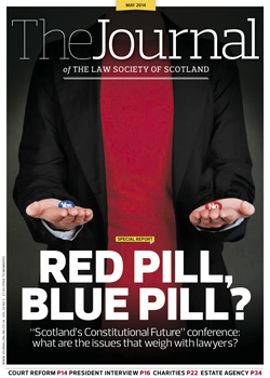Strictly confidential?
We live in an era of social media, instant publishing, abbreviated forms of communication and mobile phones, and over a very few years our apparent attitude to privacy seems to have been turned on its head. An improbable number of people are happy to broadcast everything from their holiday adventures to their personal relationship details, with little regard as to who may see their comments or images.
A number of recent divorce cases have shown the dangers of a casual attitude to digital technology, including the consequences of lost or stolen mobile phones (and to compound matters, making erroneous assumptions as to what the misappropriated information means), failing to protect passwords, concealing online bank accounts or investments (and then being discovered), or retaining sensitive business information, which should never have left the security of the office, on a personal device.
Why, then, does there appear to be a significant increase in the number of clients who are publicity shy when it comes to the termination of their marriage? This usually manifests in three ways. First, a concern that any minute of agreement containing their settlement is not recorded in the Books of Council & Session; secondly, where the case is in court, requesting an order to limit the scope of reporting; and thirdly, the giving of an undertaking.
Provision for registration
Dealing with the first, there is of course no requirement to register a minute of agreement. There are however two main reasons for doing so: first, to ensure preservation of the deed should it be necessary to refer to it in future; and, secondly, to facilitate enforcement of financial provisions in the event of non-compliance. The benefit and utility of summary diligence should not be underestimated, and it is a gift to our system envied by those practising south of the border. A practice has evolved whereby the clause for registration makes provision for two copies of the agreement to be formally executed (one to be retained by each party), but on the basis that neither will register the agreement unless there has been non-compliance with a financial provision that requires to be enforced. Such a provision prejudices neither party, and arguably reinforces the message that compliance is expected.
Adequate order?
When a case is in court, the initial concern usually arises with a motion regarding care arrangements for children and one party bringing the interim arrangements to court. The usual form of order reads: “The Lord Ordinary makes a direction in terms of section 46(1)(a) and (b) of the Children and Young Persons (Scotland) Act 1937 as amended by the Broadcasting Act 1990 that no newspaper report or report in a programme service shall reveal the name, address or school or include any particulars calculated to lead to the identification of the children, [name and date of birth], being persons in respect of whom these proceedings are taken; Directs that no picture shall be published in any newspaper or broadcast in any programme service as being or including a picture of the children concerned in these proceedings.”
Things have moved on since 1937. This form of words is arguably inadequate in the digital age.
Does a “newspaper” include online publications? What does a “programme service” mean in 2014? Where does Facebook fit with this?
Useful undertakings
The need for an undertaking is often triggered by a motion for a specification of documents. This places the haver in the awkward position of being obliged to produce the documents (if they exist), but potentially losing control of the information contained within them.
The undertaking may include a provision for the claimant not to disclose any information to any third party without the haver’s written consent; to use any documents recovered solely for the purposes of the present litigation; to undertake to destroy the documents (if copies) at the end of the litigation; but otherwise not restricting the claimant or their agents (legal team, experts etc) from discharging their duties as officers of the court.
It can be a useful tool to encourage an otherwise recalcitrant haver to produce necessary documents and, if properly drafted, leaves nowhere to hide.
Practitioners need to recognise that while we work in a fast changing digital age, the need to adhere scrupulously to our professional duty to maintain all aspects of client confidentiality continues, and is arguably greater than ever. Family lawyers may find it helpful to spend a few minutes in each first interview with new clients discussing such issues and managing expectations, including the need for the client to understand that correspondence from you to them is confidential and not for wider circulation with anyone unless agreed.
In this issue
- Immigration: where British nationals lose out
- Family actions: be prepared
- The psychology of post-adoption contact
- Attack vectors into the law: Heartbleed
- When family farming partnerships go wrong
- Reading for pleasure
- Opinion: Gillian Mawdsley
- Book reviews
- Profile
- President's column
- The results are in
- The best medicine?
- LBTT: key points for solicitors
- Courts: why the reforms add up
- Unfinished business
- The voice of technology
- Capacity: a growing issue
- Charities and the rise of social enterprises
- Referendum – the rules of debate
- Rewriting the rules
- Family leave – bedevilled by detail
- Strictly confidential?
- Budget: your flexible friend
- Scottish Solicitors' Discipline Tribunal
- Food for thought
- The consumer protection challenge
- People on the move
- Ask us another
- Healthy discord
- Claims, trends and targets
- Ask Ash
- Law reform roundup
- Cost of Time 2014: survey now open






